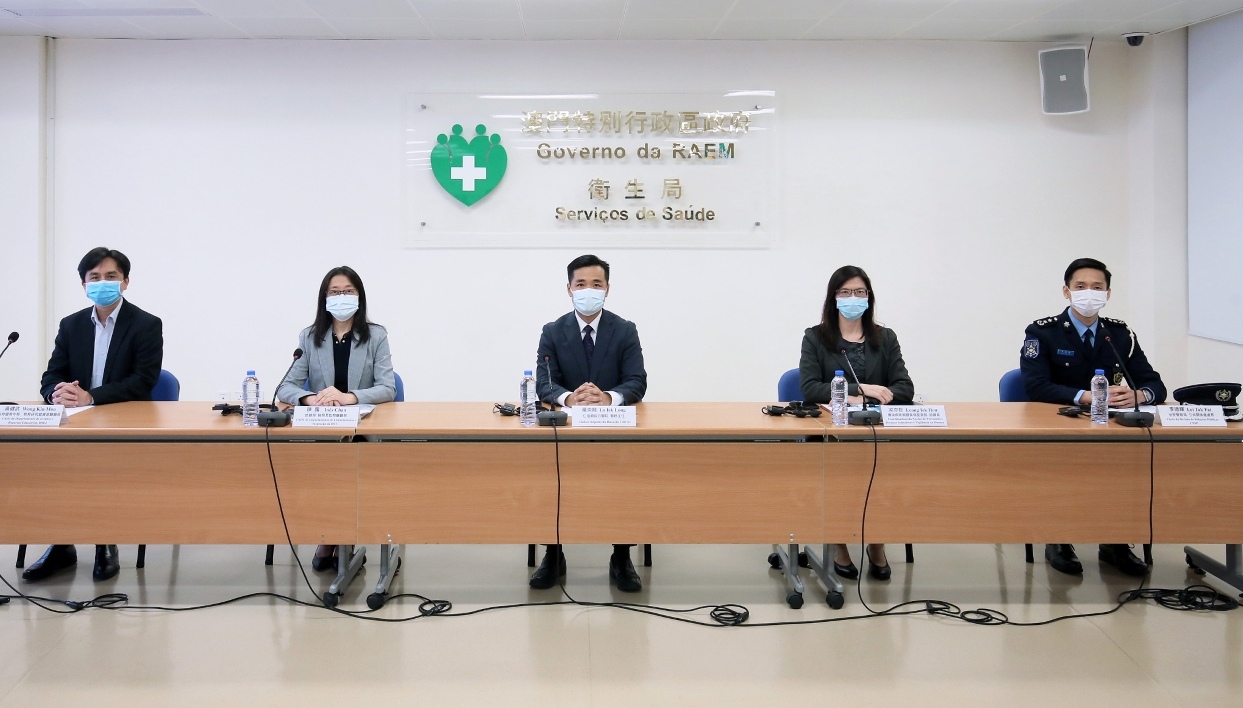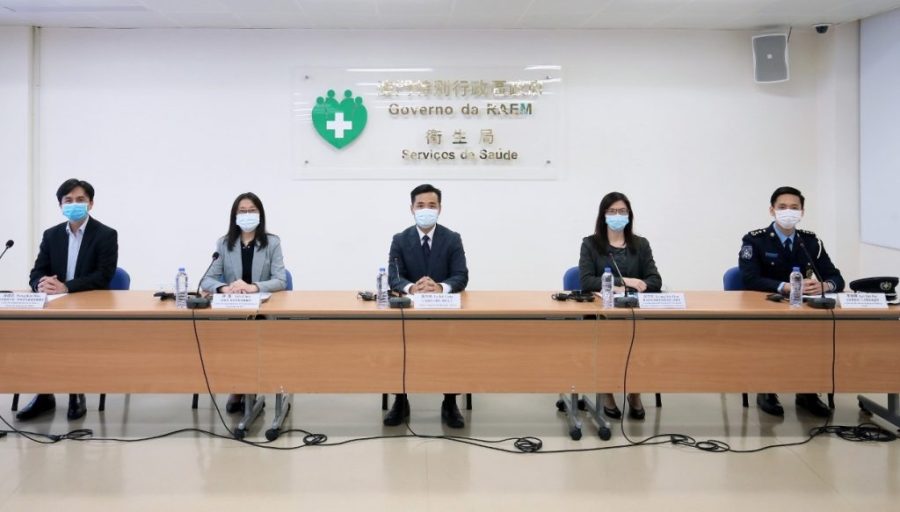Addressing Tuesday’s evening’s daily press conference about Macau’s novel coronavirus (COVID-19) situation, Inês Chan Lou, who heads the Licensing and Inspection Department of the Macau Government Tourism Office (MGTO), said that the local government could not “endlessly” ask its Hong Kong counterpart to continue offering the special arrangement allowing Macau residents returning from overseas to transit at Hong Kong’s airport en route to Macau by special bus.
The local government’s special measure, in collaboration with the Hong Kong government, to provide Macau residents who arrived at Hong Kong’s airport from foreign countries with transport to Macau started on March 17 and ended on Tuesday.
Those who wanted to join the measure had to register with the Macau government online. Under the special arrangement, after a Macau resident who had registered for the measure arrived at Hong Kong’s airport, they were transported by the Macau government from there back to Macau on special buses via the Hong Kong-Zhuhai-Macau Bridge (HZMB).
Chan reaffirmed that for the time being the local government does not plan to run the special transport measure with the assistance of its Hong Kong counterpart again following Tuesday’s termination of the arrangement.
Chan said that, as of Monday, the Macau government had transported 2,007 Macau residents back to Macau under the special arrangement, adding that 129 were slated to be transported back to Macau on Tuesday on 16 coaches in five batches.
Most of the Macau residents who joined the special transport measure are local students returning from overseas, local officials have said.
Chan pointed out that the special transport measure was initially slated to run until March 22 and was later extended until March 31, lasting a total of 15 days.
Chan noted that the special transport measure involved “a lot of” work by a raft of government entities and organisations in Macau and Hong Kong. Chan said that after the Macau government gathered the ID and flight information provided by the Macau residents who had signed up for the measure, it then passed the information on to Hong Kong’s Immigration Department, Airport Authority Hong Kong and the respective airlines, only then could the local residents returning from overseas board their flights to Hong Kong.
Chan pointed out that staff members of the Macau Tourism Crisis Management Office (GGCT) had to be ready to receive phone calls 24/7 from Macau residents who were barred from boarding their flights to Hong Kong.
Chan said that GGCT frontline staff working for the special transport measure had shouldered a “huge” workload, including following up the delivery of the Macau residents’ luggage and carrying out “basic” temperature checks on them. Chan pointed out that as the Macau residents formally did not enter Hong Kong’s territory after arriving at the airport, GGCT staff had to follow up their immigration matters with Hong Kong’s Immigration Department before they were allowed to board the special buses en route to Macau.
Chan also said that the coaches that transported the Macau residents had to undergo thorough disinfection each time.
Macau should ‘respect’ HK policies
Chan underlined that the Macau government should “respect” the epidemic prevention policies and measures in other jurisdictions including Hong Kong, adding that the Macau government “cannot endlessly transport [Macau] residents returning from overseas back to Macau [from Hong Kong’s airport]”.
During Tuesday’s press conference at the Health Bureau (SSM) adjacent to the public Conde de S. Januário Hospital Centre, SSM Control of Communicable Diseases and Surveillance of Diseases Department Coordinator Leong Iek Hou said that 187 more people went into 14 days of quarantine and medical observation on Monday – comprising 180 Macau residents and seven non-Macau residents.
A total of 125 of the 180 Macau residents are students who returned from overseas. Leong said that on Monday, 2,834 people were still undergoing their 14 days of quarantine and medical observation – 123 in home quarantine, 2,679 in hotel quarantine and 32 in the public hospital’s special emergency ward as they were showing COVID-19 symptoms.
Chan said that as of Tuesday afternoon 2,858 people were under 14 days of medical observation in the government’s 12 “quarantine hotels” – comprising 2,467 Macau residents and 391 non-resident workers and visitors.
Leong pointed out during the daily press conference on Saturday that as all the arrivals returning from overseas have been required to undergo their 14 days of quarantine and medical observation at the government’s designated hotels since March 19, no one has gone into home quarantine since then. Consequently, the last batch of people undergoing home quarantine will complete their 14-day medical observation today, Leong said on Saturday.
(The Macau Post Daily/Macau News)
PHOTO © Government Information Bureau (GCS)






